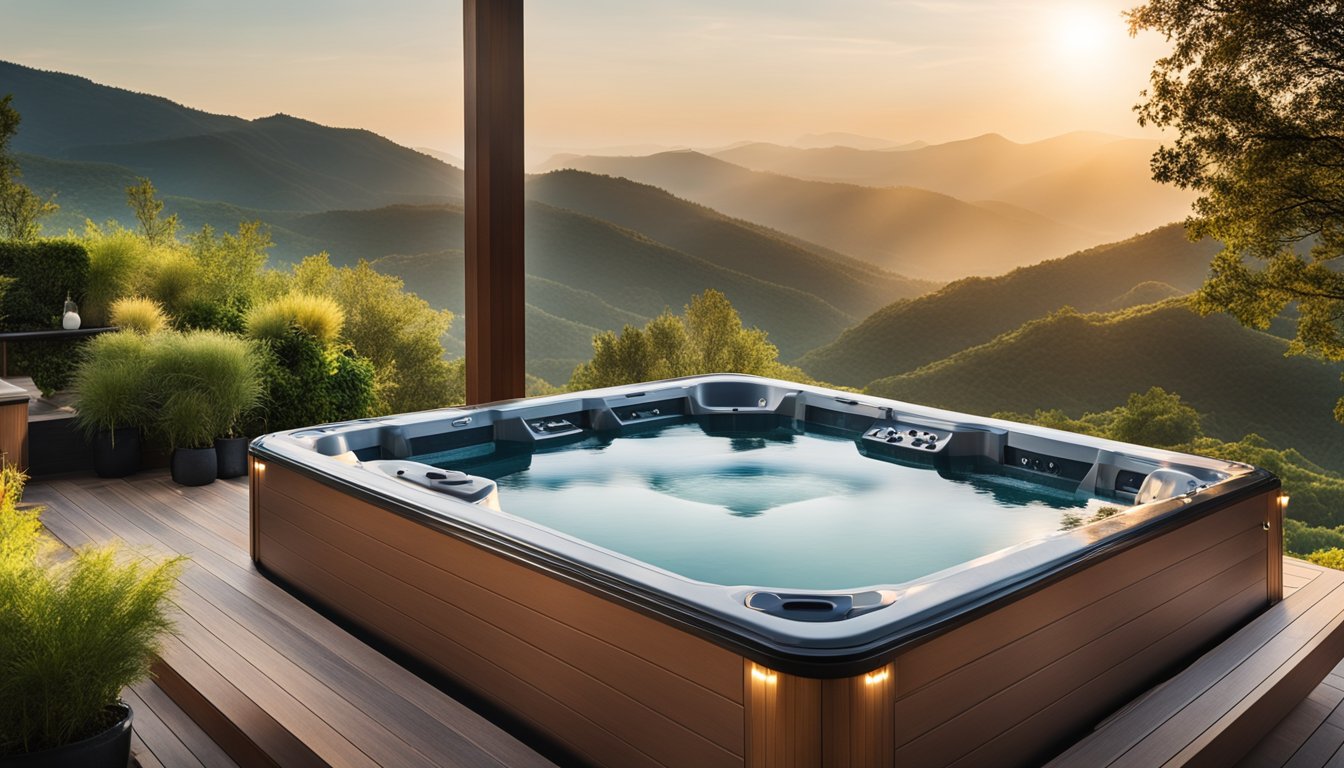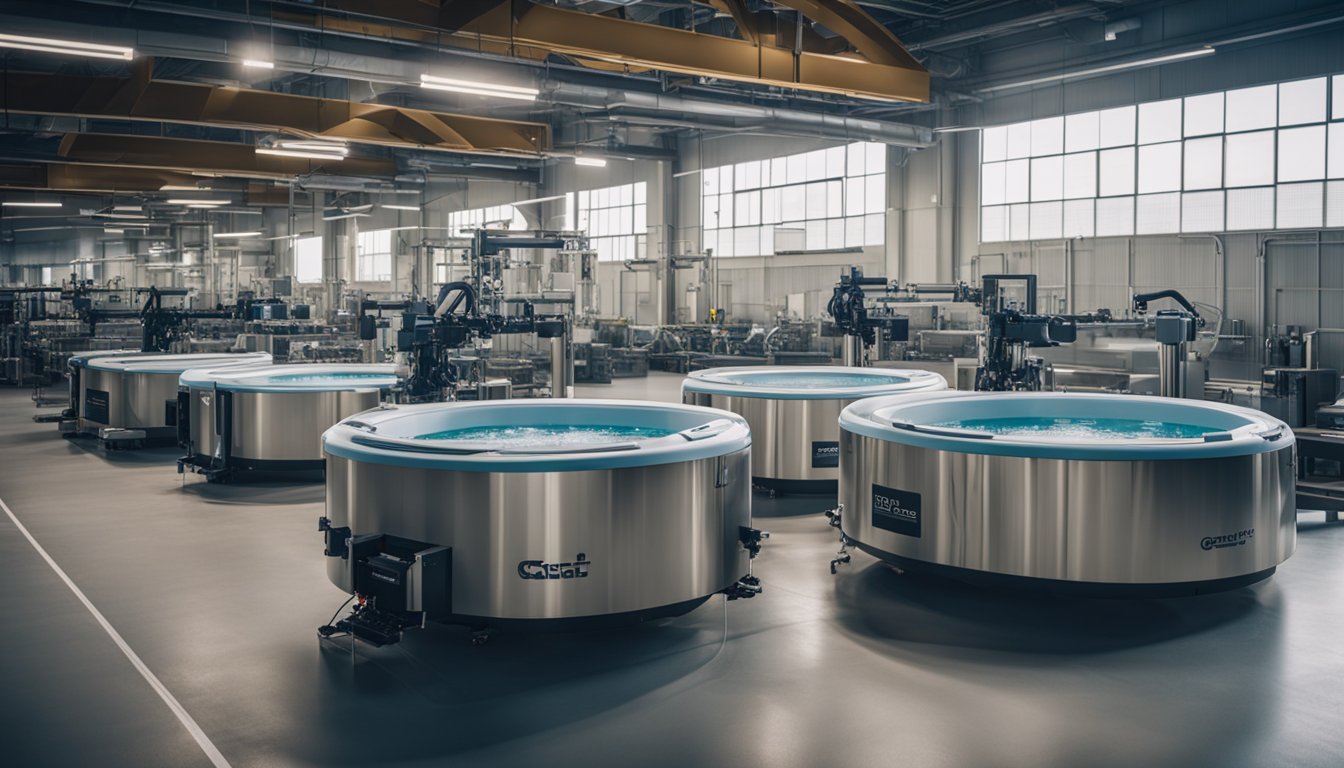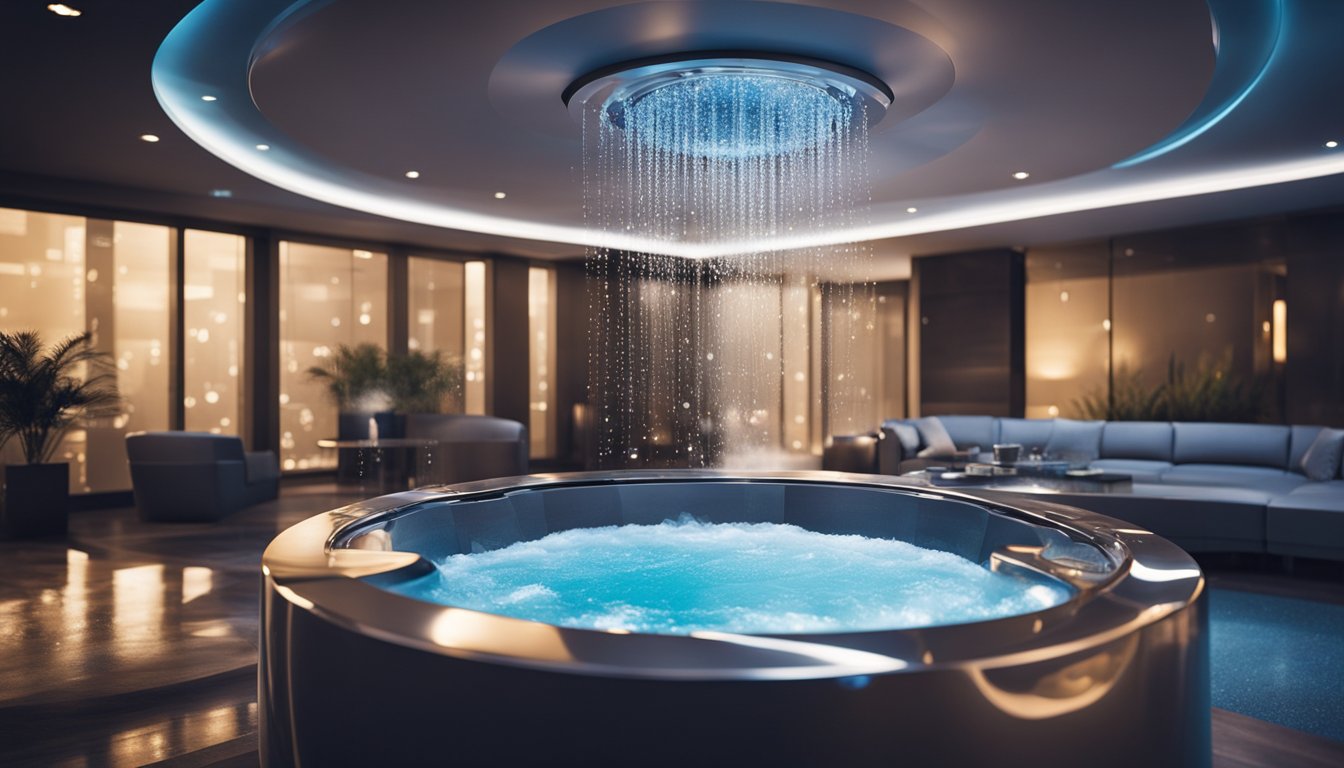Late updated: 11 Dec 2024 08:12
Written by: James Whitaker
Emerging Technologies In Hot Tub Design: Innovations Transforming Relaxation Spaces
In a world where relaxation and stress relief are prized more than ever, the evolution of hot tub design has taken a significant leap forward. Today's hot tubs are no longer just about a soothing soak; they are advanced relaxation hubs blending luxury with technology to offer unparalleled wellness experiences. From smart technology integrations allowing us to customise our relaxation settings remotely, to efficient energy systems designed with sustainability in mind, hot tubs have become an essential feature in modern homes focused on wellness and therapy.

Emerging technologies are shaping the way we experience these personal retreats. Imagine coming home to a hot tub that's pre-heated to perfection, complete with personalised light and sound settings—all managed from your smartphone. This shift towards highly customisable hot tub experiences is captivating enthusiasts seeking an intersection of leisure and luxury.
Meanwhile, the trend towards eco-friendly designs is transforming hot tub models into sustainable havens. Advanced water filtration systems significantly reduce water usage, aligning with an increasing consumer commitment to environmental responsibility. As these innovations continue to emerge, we are excited to explore how these trends will redefine home wellness spaces in the future.
Key Takeaways
- Hot tubs now blend luxury with cutting-edge technology for enhanced relaxation.
- Eco-friendly designs minimise environmental impact with efficient systems.
- Smart customisation provides a highly personalised wellness experience.
Innovative Features in Modern Hot Tub Designs
Modern hot tubs incorporate several advanced features that significantly enhance user experience. Each innovation focuses on comfort, efficiency, and convenience through technological advancements.
Hydrotherapy and Massage Systems
In recent years, we've witnessed a surge in the sophistication of hydrotherapy options within hot tub designs. Contemporary models often feature multiple massage jets with adjustable settings, allowing users to tailor their experience to address specific muscle groups. The JetPak Therapy System is a notable advancement, providing a unique configuration where users can customise jet placements for optimal relaxation.
Other enhancements include advanced chromotherapy, where LED lighting in various colours aids in stress relief and mood enhancement. This synthesis of light and water creates a therapeutic ambience, influencing physical and mental well-being.
Energy-Efficient Components
Energy efficiency in hot tub design is more important than ever, with manufacturers integrating energy-efficient pumps and incorporating renewable energy sources. Innovations in insulation technology and efficient heating systems help reduce energy consumption significantly.
Some designs use solar panels to heat the water, aligning with eco-friendly trends. Additionally, smart energy management systems track energy use, optimising consumption patterns to save costs and minimise the environmental footprint.
Smart Technology Integration
Smart technology integration has transformed the operation and enjoyment of modern hot tubs. Features like voice control and app connectivity allow users to manage settings with ease, from adjusting temperatures to scheduling maintenance alerts remotely. This level of connectivity enhances user convenience and ensures that the hot tub is always ready when needed.
Moreover, smart diagnostics can monitor water conditions and system performance in real time, notifying users of any issues before they escalate. This proactive approach to maintenance not only extends the life of the hot tub but also provides peace of mind, knowing that optimal performance is consistently maintained.
In summary, modern hot tubs blend technological prowess with practical design, advancing how we experience relaxation and wellness.
Sustainability and Customisation in Hot Tub Production

Sustainability in hot tub production marries eco-friendly materials with innovative designs, encouraging mindful consumption. Equally important is customisation, allowing us to tailor hot tubs to diverse preferences and needs, ensuring both individual satisfaction and a reduced environmental impact.
Eco-Friendly Materials and Practices
In recent years, the hot tub industry has prioritised sustainability by integrating eco-friendly materials. Using recycled plastics and wood reduces waste and promotes longevity, as these materials offer exceptional durability. Companies like Bullfrog Spas have adopted these sustainable practices, setting an inspirational standard.
Adopting energy-efficient technologies like high-performance pumps and thermal covers helps lower electricity consumption. For example, modern pumps use advanced motors that require less energy to operate. Fibreglass and acrylic are favoured for their long lifespans and ease of maintenance, further supporting eco-friendly hot tub production.
Water conservation techniques also play a crucial role. Advanced filtration and treatment systems minimise water wastage, ensuring that our hot tubs are not only luxurious but also gentle on the planet. These combined efforts in material use and practices underscore a robust commitment to environmental responsibility.
Design and Personalisation Options
Customisation in hot tub design reflects our desire for personalised experiences. The market now offers numerous configuration options. Users can choose from different sizes, shapes, and seating arrangements to suit their specific needs and available space.
Innovative designs allow integration with existing backyard aesthetics. Colour choices, ease of control via smart technologies, and additional features such as lighting and integrated sound systems provide a bespoke experience.
Incorporating personal preferences does not only enhance user satisfaction but also influences the hot tub market by highlighting unique user requirements. Integrated into our production processes, these bespoke elements show our commitment to meeting individual needs while embracing sustainable innovation.
Frequently Asked Questions

In the world of hot tub design, we've seen remarkable advancements in energy efficiency, smart technology, and hydrotherapy. These innovations enhance user experience and sustainability.
What are the latest advancements in energy efficiency for high-end spa baths?
Energy efficiency is a top priority with modern spa baths. Advanced insulation techniques and improved energy-efficient pumps ensure minimal heat loss and reduced electricity consumption.
How is smart technology being integrated into modern hot tub controls?
Smart technology has transformed hot tub controls through mobile connectivity and automation. Users can now manage water temperature, lighting, and jets from their smartphones, ensuring convenience and optimal relaxation.
What new materials are being used to improve the durability and insulation of hot tubs?
Developments in materials include high-density foam and recycled plastics. These materials enhance insulation and durability, prolonging the lifespan of hot tubs.
In what ways is hydrotherapy technology evolving in contemporary hot tub designs?
Hydrotherapy has become more sophisticated with variable jet configurations and customised massage programmes. These features target specific muscle groups, offering therapeutic benefits tailored to individual needs.
Can you explain the developments in filtration and sanitisation systems for hot tubs?
Modern hot tubs utilise advanced filtration systems like ozone and UV-C light. These systems improve water clarity and reduce the need for chemical sanitisation, creating a more eco-friendly and gentle bathing experience.
What innovations are there in hot tub jets and massage features?
Hot tub jets now offer enhanced adjustability and power. Innovative designs, such as directional and pulsating jets, provide a variety of massage options, replicating professional therapy sessions.
